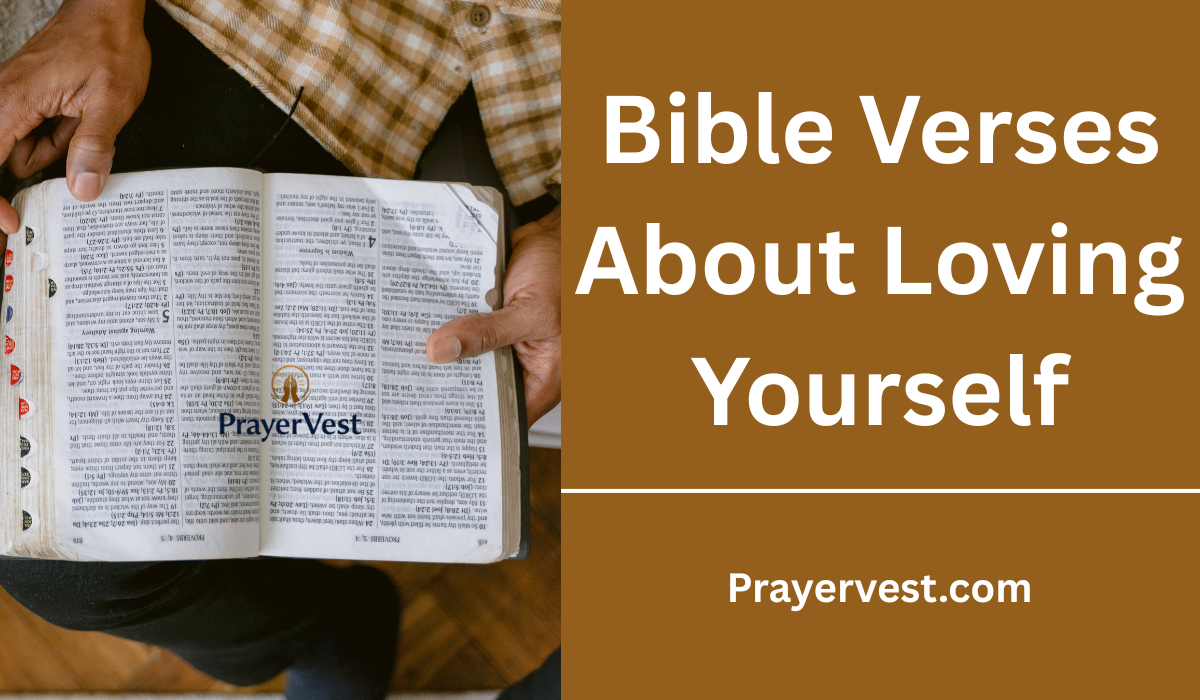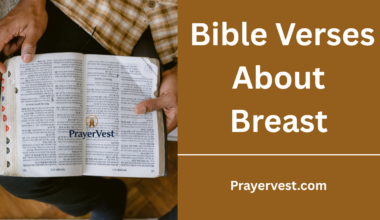A biblical concept that is frequently misinterpreted but has its roots in God’s Word is loving oneself. Scripture serves as a reminder that we are fearfully and wonderfully created in God’s image, and that our identity in Christ, rather than worldly standards, is what gives us value.
To love oneself in a godly manner is to acknowledge God’s handiwork in your life, not to be arrogant or self-centered. You develop a sound sense of self-worth that enables you to live in assurance and tranquility when you perceive yourself as God does—precious, chosen, and redeemed.
According to the Bible, we should “love our neighbor as ourselves,” which suggests that self-love in its rightful and moral form is crucial. It is hard to show others true love if we do not have a healthy, Spirit-led love for who we are in Christ.
Scripture defines self-love as accepting God’s forgiveness, grace, and purpose for our lives, as well as taking good care of the body, mind, and soul He has given us. It is choosing to rest in the reality of who we are in Him and rejecting falsehoods about our lack of value.


These Bible passages on loving oneself are about respecting oneself, accepting oneself, and being thankful to God for creating you, not about being self-centered. They lead us to happiness, serenity, and a sense of acceptance in Christ in place of comparison, insecurity, and self-condemnation. To confidently walk in God’s calling and show the same love to the world around you, may you come to love yourself as much as God loves you, as you think about these verses.
40 Inspiring Bible Verses About Loving Yourself (2026)
1. Psalm 139:14
“I praise you because I am fearfully and wonderfully made; your works are wonderful, I know that full well.”
This psalm is a celebration of God’s craftsmanship in creating us. It affirms that every person is designed with intention, beauty, and worth. Loving yourself begins with recognizing that you are God’s masterpiece, created in His image and worthy of honor.
2. Matthew 22:39
“And the second is like it: ‘Love your neighbor as yourself.’”
Jesus links self-love to loving others. This command implies that caring for others is inseparable from caring for oneself. Healthy self-love, rooted in God’s truth, equips us to extend genuine love and compassion to the people around us.
3. Ephesians 2:10
“For we are God’s handiwork, created in Christ Jesus to do good works, which God prepared in advance for us to do.”
Paul reminds believers of their divine value and purpose. Loving yourself means embracing the truth that you are uniquely created for good works. You are not an accident—you are God’s intentional design, destined to make an impact.
4. Song of Solomon 4:7
“You are altogether beautiful, my darling; there is no flaw in you.”
Though written as a love poem, this verse also reflects how God views His people—beautiful, cherished, and without flaw in His sight. Loving yourself involves rejecting lies of inadequacy and embracing God’s perspective of your worth.
5. Romans 12:3
“Do not think of yourself more highly than you ought, but rather think of yourself with sober judgment, in accordance with the faith God has distributed to each of you.”
This verse balances humility with healthy self-worth. Loving yourself is not arrogance but acknowledging your value while walking in humility. It teaches us to see ourselves clearly through God’s lens—precious yet dependent on His grace.
6. 1 Corinthians 6:19-20
“Do you not know that your bodies are temples of the Holy Spirit, who is in you, whom you have received from God? You are not your own; you were bought at a price. Therefore honor God with your bodies.”
Paul’s reminder elevates our worth by revealing that our bodies are dwelling places of the Holy Spirit. Loving yourself means caring for your physical, emotional, and spiritual well-being as a sacred responsibility to God.
7. Jeremiah 29:11
“For I know the plans I have for you,” declares the Lord, “plans to prosper you and not to harm you, plans to give you hope and a future.”
This verse affirms that your life has a divine purpose and destiny. Loving yourself means trusting God’s good plans for you, embracing hope, and refusing to live under self-doubt or despair.
8. Proverbs 19:8
“The one who gets wisdom loves life; the one who cherishes understanding will soon prosper.”
Here, Solomon equates the pursuit of wisdom with loving oneself. True self-love is not reckless indulgence but nurturing growth, understanding, and a life lived with purpose and discernment.
9. Isaiah 43:4
“Since you are precious and honored in my sight, and because I love you, I will give people in exchange for you, nations in exchange for your life.”
God Himself declares your worth as precious and honored. Loving yourself begins by internalizing His affirmation—that you are deeply loved, valued, and worth sacrifice in His eyes.
10. 3 John 1:2
“Dear friend, I pray that you may enjoy good health and that all may go well with you, even as your soul is getting along well.”
John’s prayer reflects God’s desire for holistic well-being—body, soul, and spirit. Loving yourself includes caring for your health, nurturing your soul, and allowing God’s peace to flourish within you.
11. Matthew 10:31
“So don’t be afraid; you are worth more than many sparrows.”
Jesus reassures His disciples of their immeasurable worth in God’s eyes. If God cares deeply for the smallest creatures, how much more does He care for His children? Loving yourself means resting in this truth—you are valuable beyond measure and need not live in fear of rejection, lack, or insignificance. This verse calls you to walk confidently, knowing your worth is not determined by worldly measures but by God’s unfailing love.
12. Isaiah 49:16
“See, I have engraved you on the palms of my hands; your walls are ever before me.”
God paints a picture of unshakable love and remembrance by declaring that His people are engraved on His hands. This metaphor speaks of permanence, intimacy, and constant care. To love yourself is to embrace the fact that you are never forgotten or overlooked. Even in moments of loneliness or self-doubt, you are eternally marked by God’s affection and protection.
13. Luke 12:7
“Indeed, the very hairs of your head are all numbered. Don’t be afraid; you are worth more than many sparrows.”
This verse emphasizes God’s detailed care for every aspect of your life, down to the smallest details like the number of hairs on your head. Loving yourself begins with acknowledging that you are intentionally known and deeply valued. God’s attentive love reminds us to reject feelings of worthlessness and instead embrace the truth that we are cherished at every level of our being.
14. 1 Peter 2:9
“But you are a chosen people, a royal priesthood, a holy nation, God’s special possession, that you may declare the praises of him who called you out of darkness into his wonderful light.”
Peter declares your identity in Christ—you are chosen, royal, holy, and treasured. Loving yourself is recognizing your divine calling and living with dignity as someone set apart for God’s purposes. Instead of seeing yourself through the lens of inadequacy, see yourself as God’s beloved possession, created to shine His light into the world.
15. Proverbs 31:25
“She is clothed with strength and dignity; she can laugh at the days to come.”
This verse, while describing a virtuous woman, reflects a truth applicable to everyone: when we recognize our God-given dignity, we find strength and confidence for the future. Loving yourself means embracing resilience and facing life’s uncertainties without fear. Self-love is rooted not in arrogance but in the assurance that God has equipped you with strength and honor.
16. Zephaniah 3:17
“The Lord your God is with you, the Mighty Warrior who saves. He will take great delight in you; in his love he will no longer rebuke you, but will rejoice over you with singing.”
This beautiful verse reveals God’s delight in His people. Imagine God rejoicing and singing over you! Loving yourself requires accepting this divine joy—that you are not merely tolerated but deeply celebrated by your Creator. When you see yourself through God’s eyes, you begin to appreciate your worth and live with confidence.
17. Psalm 147:3
“He heals the brokenhearted and binds up their wounds.”
This psalm reassures us that God is close to the brokenhearted, mending pain and restoring wholeness. Loving yourself means allowing God to heal past wounds and embracing your worth even in seasons of brokenness. Instead of defining yourself by scars, you learn to see yourself as someone worthy of love, restoration, and hope.
18. Genesis 1:27
“So God created mankind in his own image, in the image of God he created them; male and female he created them.”
Your worth begins with your identity as an image-bearer of God. Loving yourself is recognizing that you reflect the Creator’s character and beauty. No matter what the world says, your value is rooted in divine design. This verse calls us to embrace ourselves as sacred beings, created intentionally and uniquely by God.
19. Romans 8:37
“No, in all these things we are more than conquerors through him who loved us.”
Paul declares victory over trials, challenges, and fear through God’s love. Loving yourself means rejecting defeatist thinking and embracing your identity as a conqueror in Christ. You are not defined by past mistakes or failures but by the love that empowers you to overcome. Self-love grounded in Christ gives courage to face life boldly.
20. John 15:12
“My command is this: Love each other as I have loved you.”
Jesus commands love, and His example shows us how. But notice—He sets the standard by His own love, which includes deep compassion, sacrifice, and affirmation. To love others fully, you must first receive His love and extend that same grace to yourself. Loving yourself means treating yourself with the same kindness and forgiveness that Christ demonstrates.
21. Philippians 4:13
“I can do all this through him who gives me strength.”
This powerful verse is a reminder that your abilities are not limited by weakness but strengthened by Christ. Loving yourself means believing in the strength God provides and rejecting thoughts of inadequacy. When you embrace His power working through you, you can face challenges with confidence and courage, knowing that God equips you for every season of life.
22. Psalm 23:1
“The Lord is my shepherd, I lack nothing.”
David’s declaration reflects complete trust in God’s provision and care. Loving yourself involves living from a place of contentment, knowing you are already complete in Christ. You don’t have to chase validation from others or exhaust yourself seeking what you already have in Him. Recognizing this truth allows you to rest in peace and appreciate your worth.
23. Isaiah 41:10
“So do not fear, for I am with you; do not be dismayed, for I am your God. I will strengthen you and help you; I will uphold you with my righteous right hand.”
This verse reassures us of God’s constant presence and support. Loving yourself includes embracing His promise to carry you when you feel weak. You do not have to live in fear or self-doubt—your identity is secured by His strength and protection. Self-love flows from trusting His sustaining power in every circumstance.
24. Colossians 3:12
“Therefore, as God’s chosen people, holy and dearly loved, clothe yourselves with compassion, kindness, humility, gentleness and patience.”
Paul highlights your identity as chosen, holy, and dearly loved. Loving yourself begins with accepting that truth—your value comes from God’s love, not worldly standards. Out of that deep assurance, you can live with compassion, kindness, and patience, both toward yourself and others.
25. Proverbs 4:23
“Above all else, guard your heart, for everything you do flows from it.”
This verse emphasizes the importance of protecting your inner life. Loving yourself means safeguarding your heart from negativity, toxic influences, and self-destructive thoughts. By nurturing your spirit with God’s Word, you ensure that what flows out of your life reflects His love, peace, and joy.
26. John 3:16
“For God so loved the world that he gave his one and only Son, that whoever believes in him shall not perish but have eternal life.”
The heart of the gospel affirms your worth—God’s love for you was so great that He gave His Son. Loving yourself means receiving this sacrificial love as truth for your life. You are not defined by failures or flaws but by the immense love God poured out for you. Accepting that truth allows you to live in freedom and self-worth.
27. Psalm 34:5
“Those who look to him are radiant; their faces are never covered with shame.”
When we turn to God, He removes shame and replaces it with radiance. Loving yourself means rejecting shame and embracing the dignity God gives you. Your value is not diminished by mistakes; instead, God restores and lifts you. This verse calls you to live confidently, free from the weight of guilt or insecurity.
28. Ephesians 3:17–18
“So that Christ may dwell in your hearts through faith. And I pray that you, being rooted and established in love, may have power, together with all the Lord’s holy people, to grasp how wide and long and high and deep is the love of Christ.”
Paul’s prayer reminds us that Christ’s love is vast and unshakable. Loving yourself means allowing your identity to be rooted in that love, not in temporary opinions or circumstances. When you grasp the depth of God’s love, it transforms how you view yourself and empowers you to walk in true confidence.
29. Psalm 103:2–3
“Praise the Lord, my soul, and forget not all his benefits—who forgives all your sins and heals all your diseases.”
This psalm is a call to remember God’s forgiveness and healing. Loving yourself involves letting go of guilt and receiving His mercy. You cannot love yourself fully while holding onto self-condemnation. God’s forgiveness frees you to embrace self-love, rooted in His grace and restoration.
30. Galatians 2:20
“I have been crucified with Christ and I no longer live, but Christ lives in me. The life I now live in the body, I live by faith in the Son of God, who loved me and gave himself for me.”
Paul testifies that his identity is found in Christ’s love and sacrifice. Loving yourself means recognizing that you are so deeply valued that Christ chose to give His life for you. You are no longer bound by old failures or insecurities—your life is now a reflection of Christ’s love living within you.
31. Deuteronomy 31:6
“Be strong and courageous. Do not be afraid or terrified because of them, for the Lord your God goes with you; he will never leave you nor forsake you.”
This verse reassures us of God’s unfailing presence. Loving yourself means embracing courage, knowing that God is always with you. Fear and insecurity lose their grip when you understand that you are never abandoned. Your worth is affirmed by God’s promise to walk beside you every step of your journey.
32. Psalm 27:1
“The Lord is my light and my salvation—whom shall I fear? The Lord is the stronghold of my life—of whom shall I be afraid?”
David declares God as his source of light and strength. Loving yourself is refusing to live in fear or self-doubt because your confidence rests in the Lord. When you see yourself through His protective care, you learn to value yourself as someone defended and sustained by His power.
33. 2 Timothy 1:7
“For the Spirit God gave us does not make us timid, but gives us power, love and self-discipline.”
Paul reminds Timothy that the Spirit of God brings boldness, love, and self-control. Loving yourself means rejecting timidity and living with empowered confidence. You are not meant to live small or fearful; God has given you the strength and clarity to live a purposeful, disciplined life with love at its center.
34. Lamentations 3:22–23
“Because of the Lord’s great love we are not consumed, for his compassions never fail. They are new every morning; great is your faithfulness.”
This verse is a reminder of God’s daily renewal. Loving yourself means embracing fresh mercy each day rather than living in regret or self-condemnation. No matter your past mistakes, God’s love offers a new beginning every morning. Learning to accept His mercy allows you to love yourself with compassion and grace.
35. Psalm 55:22
“Cast your cares on the Lord and he will sustain you; he will never let the righteous be shaken.”
God invites you to lay your burdens on Him. Loving yourself includes not carrying unnecessary stress, guilt, or pressure, but trusting Him to sustain you. Valuing yourself means recognizing your limitations and letting God’s strength carry what you cannot. This is an act of self-love rooted in humility and faith.
36. 1 John 4:19
“We love because he first loved us.”
This verse anchors all love in God’s initiating love for us. Loving yourself begins with receiving that love fully and unconditionally. Your capacity to love yourself and others flows directly from knowing you are already loved. By resting in this truth, you develop a healthy and secure self-love that honors God.
37. Joshua 1:9
“Have I not commanded you? Be strong and courageous. Do not be afraid; do not be discouraged, for the Lord your God will be with you wherever you go.”
God commands strength and courage because His presence is constant. Loving yourself means rejecting discouragement and walking with confidence. You can embrace your worth because the Almighty God promises to accompany you into every situation. This assurance is the foundation of true, unshakable self-love.
38. Psalm 62:5
“Yes, my soul, find rest in God; my hope comes from him.”
This psalm speaks of resting in God as the ultimate source of hope. Loving yourself means allowing your soul to rest instead of living in constant striving. Your value isn’t measured by your performance but by your relationship with God. Self-love is nurtured when you choose rest, peace, and hope in Him.
39. Micah 6:8
“He has shown you, O mortal, what is good. And what does the Lord require of you? To act justly and to love mercy and to walk humbly with your God.”
This verse outlines a life of balance—justice, mercy, and humility. Loving yourself means living with integrity and aligning with God’s purpose. Self-love is not selfishness; it is choosing to walk humbly and mercifully, honoring the dignity God has given you. This posture fosters peace within and respect for yourself.
40. Revelation 21:4
“‘He will wipe every tear from their eyes. There will be no more death’ or mourning or crying or pain, for the old order of things has passed away.”
This final promise reminds us of God’s ultimate restoration. Loving yourself includes holding onto hope for the future, where all pain and sorrow will be erased. You are worth so much to God that He has prepared a place of eternal joy for you. Embracing this truth gives strength to love yourself now, while anticipating the fullness of His love forever.
Conclusion
In summary, the Bible makes it abundantly evident that loving oneself is about acknowledging your value as God’s cherished creation rather than being conceited or self-centered. Knowing that you are selected, redeemed, and incredibly loved allows you to walk in freedom, joy, and confidence once you learn to see yourself through His eyes. By accepting this reality, you can break free from the bonds of comparison, insecurity, and self-doubt and lead a life of thankfulness and tranquility.
In the end, loving yourself prepares you to act out God’s plan for your life and to love others more completely. You reflect God’s glory when you take good care of your body, nurture your spirit, and value the gifts He has given you. You can improve your relationship with God and yourself by clinging to the promises made in these Bible passages. This will enable God’s love to radiate from you into the lives of people around you.






